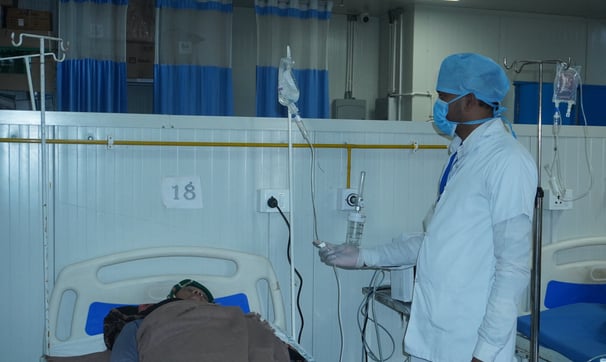Insomnia
AFTER SURGERY


Sleep in surgical patients cared for in the ICU and ward may be highly abnormal. Although patients may sleep 8 hours or more in a 24-hour period, sleep is highly fragmented and sleep architecture is abnormal with minimal time spent in the deeper restorative stages of sleep.Hospital wards have been shown to be particularly difficult places to get a good night's sleep. By their very nature surgical wards are very noisy with activity throughout the night hours. Surgical wards are also bright with a lot of patient interventions occurring. Nursing interventions while necessary have also been reported as causing disturbance. Experiencing difficulty falling and staying asleep after having surgery is common. Patients may report decreased sleep time, increased numbers of arousals or awakening, lowered sleep quality, and frequent nightmares. It’s often tied to factors like pain, medications, and the hospital environment. Insomnia after surgery is often short-lived, and sleep aids and optimal sleep habits can help.
Factors associated with postoperative sleep disturbance
Age - Aging is associated with sleep structure changes and the elderly find it more difficult to adjust their sleep to environmental changes. Therefore, elderly patients are more prone to develop postoperative sleep disturbances.
Preoperative comorbidity - Patients with preoperative obstructive sleep apnea (OSA) are at increased risk of postoperative sleep disturbances. Severe preoperative coronary artery disease is also associated with worse sleep quality after surgery. Studies have also shown that patients with preoperative myocardial infarction have significantly worse sleep quality after surgery, and higher preoperative angina score is an independent predictor of poor sleep quality after surgery.
Post-operative pain – Pain is possibly the most important and common factor responsible for sleep disturbances. While the patient will be administered analgesics in the post-operative period, in case of inadequate pain relief the patient may discuss escalation of the analgesic with the hospital team.
Environmental factors - Noise and lights in the ward, disturbances from healthcare staff, and disturbances from other patients are also important sleep .
Other discomforts - needing to use toilet facilities, nausea, anxiety, fever, and others, lead to sleep disturbances as well.
Management tips for insomnia after surgery
To boost your chance for the best quality sleep possible, consider:
use of sleep aids like eye masks and earplugs
avoiding large meals before bed
using blue light-blocking glasses while watching electronics
keeping a consistent sleep-wake schedule
adhering to physiotherapy and general exercises as advised in the hospital
incorporating stress management techniques throughout the day
if at home, keeping your room cool, dark, and quiet
When to seek professional help
Insomnia after surgery usually resolves on its own, but signs that insomnia may require medical attention include:
having symptoms past the first week of recovery
feeling daytime fatigue that affects activities or function
experiencing challenges in concentration or memory
having symptoms of depression or anxiety
noticing new physical challenges like high blood pressure
If you’re not sleeping well, speaking with a healthcare professional can help rule out other underlying causes. It could also help identify medications, pain levels, or other factors contributing to sleep disturbances.


